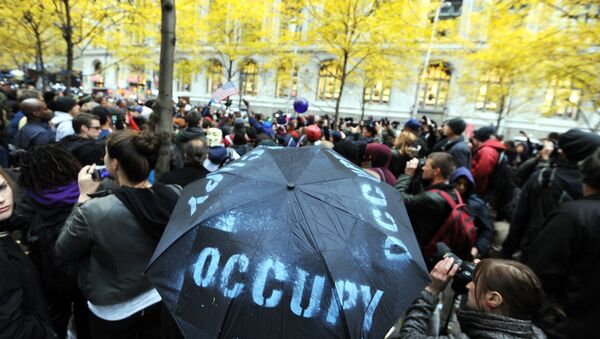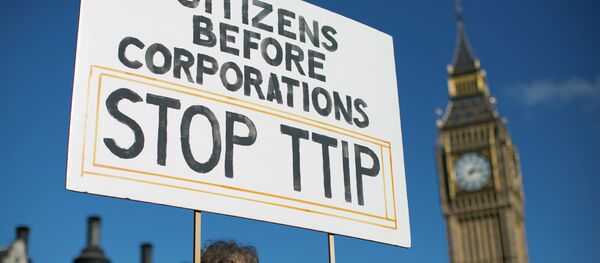According to a 2012 Pew Survey, in general 50 percent of Americans said they had a positive view of capitalism, and 40 percent said they have a negative view.
In that survey, the 18-29 age group again had the most negative view of capitalism, and older age groups were more positive.
In an article for Foreign Policy last week, Sarah Kendzior wrote that the figures are unsurprising.
"Is it any wonder over half of 18- to 29-year-olds in America say they do not support capitalism?" she asked.
A 20-year-old American today was five years old during the September 11 attacks, and America has been at war for as long as they can remember, she argued.
This was followed by the global economic collapse in 2008, from which the economy has never fully recovered and ordinary people continue to struggle.
Kendzior points out that figures for unemployment are obscured by the government policy of counting everybody working part-time, in short-term work or making salaries below the poverty line. So in 2016, politicians declared that unemployment is a low 4.6 percent, ignoring the real hardships felt by many.
"That is what employment looks like in America. It is not personal fulfillment or a path to a future. It is futility — and it is forever. Survival is the new American Dream," Kendzior wrote.
The director of the Harvard poll, John Della Volpe, told the Washington Post that the young people told him in focus groups that capitalism was unfair and left people out despite their hard work.
"Capitalism, in other words, holds less appeal in an era when the invisible hand feels like a death grip," Kendzior wrote.
"Americans under 20 have had little to no adult experience in a pre-Great Recession economy. Things older generations took for granted — promotions, wages that grow over time, a 40-hour work week, unions, benefits, pensions, mutual loyalty between employers and employees — are increasingly rare."
Kendzior points out that the minimum wage, which peaked in 1968, would have reached $21.72 in 2012 had it kept pace with inflation. US Democratic candidate Bernie Sanders proposes a $15 national minimum wage.
"In this context, Bernie Sanders, whose policies echo those of New Deal Democrats, can be deemed a 'socialist' leading a 'revolution.' His platform seems revolutionary only because American work life has become so corrupt, and the pursuit of basic stability so insurmountable, that modest ambitions — a salary that covers your bills, the ability to own a home or go to college without enormous debt — are now fantasies or luxuries."




